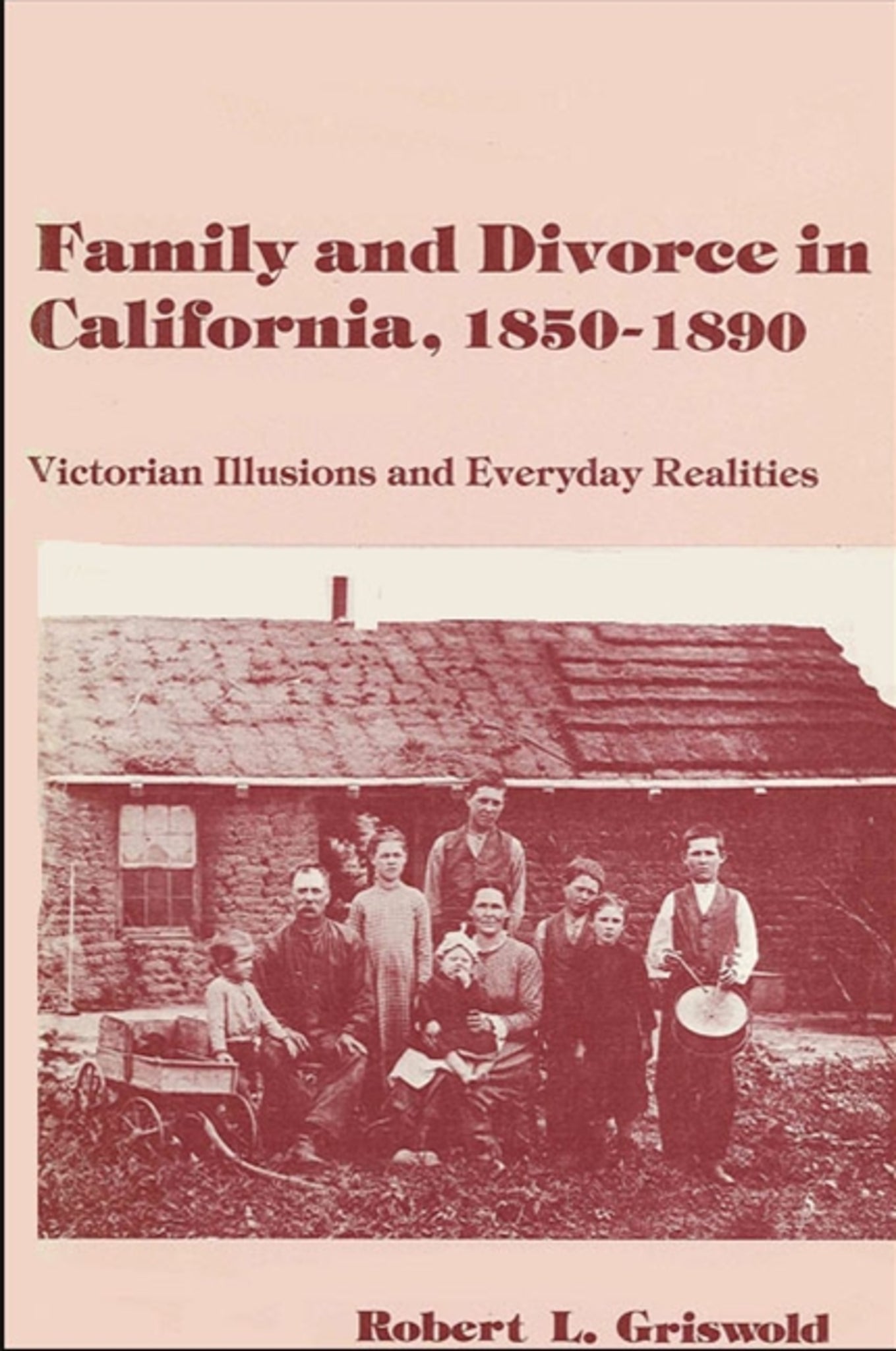We're sorry. An error has occurred
Please cancel or retry.
Family and Divorce in California, 1850-1890

Some error occured while loading the Quick View. Please close the Quick View and try reloading the page.
Couldn't load pickup availability
- Format:
-
30 June 1983

Few of the men and women who came to California after the discovery of gold had the opportunity or the inclination to record their thoughts about family life. Their family experience, like that of most nineteenth-century Americans, is obscured by time and an absence of sources.
Family and Divorce in California succeeds in reconstructing the private world of farmers, laborers, small-town merchants tradesmen, and housewives through an examination of local newspapers, census data, legal documents, and, above all, divorce records during the years 1850 to 1890. Some 400 divorce cases from two rural counties form the core of the study.
Here we see how the compassionate ideal, the cult of true womanhood, and the work ethic actually affected the attitudes and behavior of working-class and rural as well as urban, middle-class people. A wide variety of topics is covered:
basic family values
women's health, work, sexuality, character, and independence
men's work, sexual conduct, and affective relations
the nature of parenthood, childhood, and marital companionship
domestic violence
The book also explores the early years of the divorce crisis that began in the 1880s and answers the questions of how and why it developed.


Illustrations
Acknowledgments
1. Introduction: From Patriarchy to Companionship
2. Divorce Documents and Divorce Seekers
3. Ideal Womanhood in California
4. Dimensions of Womanhood: Domesticity, Chastity, and Independence
5. Ideal Manhood in California
6. Manhood and the Companionate Ideal
7. Parents and Children in Nineteenth-Century California
Afterword: The Family, Victorian Culture, and Twentieth-Century Developments
Appendix: Composition of the Social Classes
Notes
Bibliography
Index



